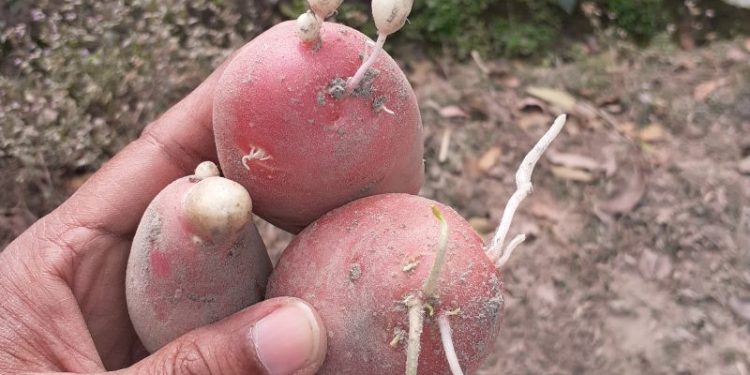Agricultural practices in Bangladesh are under scrutiny as concerns rise over the excessive use of chemicals in potato production. Nur Hasan, Junior Assistant Manager of the Seed Production Department, sheds light on the pressing need for adopting Good Agricultural Practices (GAP) to safeguard both human health and the environment.
GAP serves as a vital framework for ensuring the safe and sustainable production of crops and livestock. Its primary goal is to assist farm owners in maximizing yields and streamlining business operations while minimizing production costs and ecological impact. However, Hasan’s observations in the field paint a troubling picture of rampant misuse of fertilizers, vitamins, and hormones, particularly in potato cultivation.
Venturing beyond the confines of seed potato production, Hasan often explores table potato fields during his free time. What he encounters is a stark reality of farmers resorting to excessive chemical applications without regard for the long-term consequences. The indiscriminate use of these substances not only jeopardizes crop health but also poses risks to human consumers and the surrounding ecosystem.
In Bangladesh, where food-related diseases afflict a significant portion of the population, the imperative for food security and safety cannot be overstated. Hasan emphasizes that GAP is not merely a recommendation but a critical necessity for safeguarding public health, preserving the environment, and bolstering the economy.
Recent evidence from a table potato field adjacent to a seed potato production block illustrates the adverse effects of chemical overuse. Abnormal growth, sprouting, color deterioration, and other anomalies manifest in the tubers of plants subjected to excessive vitamins and hormones. Such instances underscore the urgent need for intervention at both governmental and organizational levels.
To address this pressing issue, Hasan calls for concerted efforts from governmental bodies and international organizations to promote GAP adoption across the agricultural sector in Bangladesh. By prioritizing sustainable practices and ensuring regulatory oversight, stakeholders can mitigate the risks posed by excessive chemical usage and pave the way for a healthier, more resilient food system.







